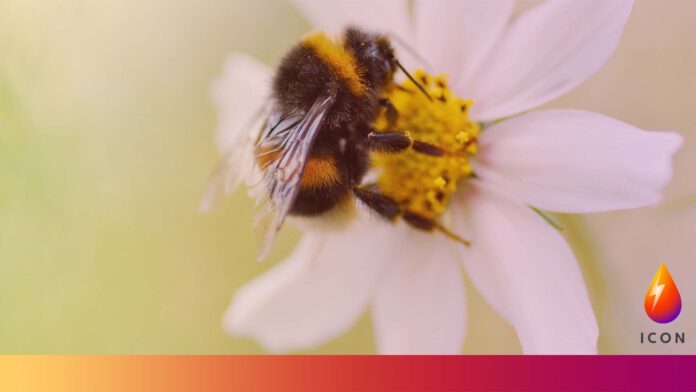
Common air pollutants from both urban and rural environments may be reducing the pollinating abilities of insects by preventing them from sniffing out the crops and wildflowers that depend on them, new research has shown.
Scientists from the University of Reading, the UK Centre for Ecology & Hydrology, and the University of Birmingham found that there were up to 70% fewer pollinators, up to 90% fewer flower visits and an overall pollination reduction of up to 31% in test plants when common ground-level air pollutants, including diesel exhaust pollutants and ozone, were present.
The study, published in the journal Environmental Pollution, is reported to be the first to observe a negative impact of common air pollutants on pollination in the natural environment. The theory is that the pollutants react with and change the scents of flowers, making them harder to find.
Dr Robbie Girling, Associate Professor in Agroecology at the University of Reading, who led the project, commented: “We knew from our previous lab studies that diesel exhaust can have negative effects on insect pollinators, but the impacts we found in the field were much more dramatic than we had expected.”
The study, funded by the Natural Environment Research Council, used a purpose-built fumigation facility to regulate levels of nitrogen oxides (NOx) – present in diesel exhaust fumes – and ozone in an open field environment.
The researchers then observed the effects these pollutants had on the pollination of black mustard plants by free-flying, locally-occurring pollinating insects over the course of two summer field seasons.
Observations revealed there were 62-70% fewer pollinator visits to the plants located in polluted air. This reduction was seen in seven pollinator groups, particularly bees, moths, hoverflies and butterflies. There were also 83-90% fewer flower visits by these insects, and ultimately a 14-31% reduction in pollination, based on seed yield and other factors.
Dr James Ryalls, a Leverhulme Trust Research Fellow at the University of Reading, who conducted the study, added: “The findings are worrying because these pollutants are commonly found in the air many of us breathe every day.
“We know that these pollutants are bad for our health, and the significant reductions we saw in pollinator numbers and activity shows that there are also clear implications for the natural ecosystems we depend on.”
This research is part of continuing studies into the effects of air pollution on insect health and their interactions with the environment by researchers at the University of Reading.
Previous laboratory studies by members of the Reading team have shown that diesel fumes can alter floral odours. This work suggested that pollution could contribute to the ongoing declines in pollinating insects, by making it harder for them to locate their food – pollen and nectar.
More information about this research is also available on the university website.